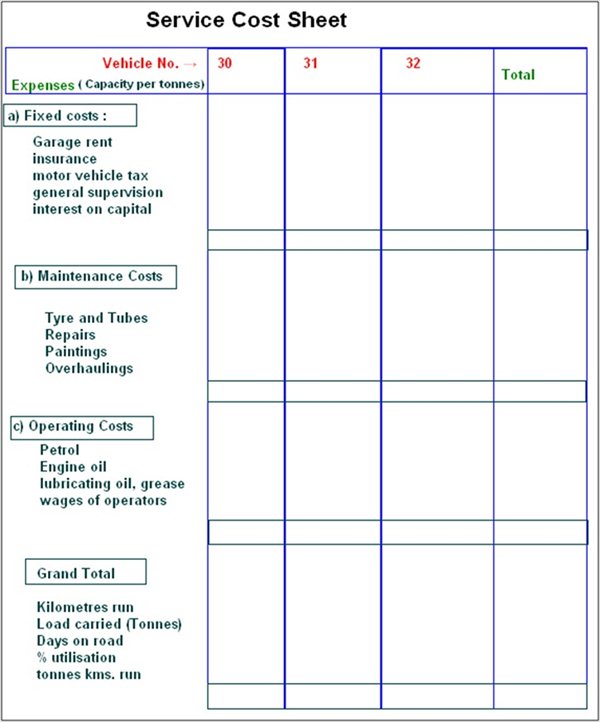Service Costing - Definition, Importance & Example
What is Service Costing?
Service costing is a type of operation costing which is used in organizations which create and deliver services instead of producing goods. In this method of cost accounting, all the costs incurred in the production of a service are added together. They are then divided by the total number of service units rendered. The total cost is then divided by the total units to arrive at per unit cost.
Importance of Service costing
Service costing is different than normal costing as it is dependent on the rate rather than a price. Rate is nothing but the price per unit of service delivered e.g. 1 prepaid plan of telecom or one ride of bus from one point to another. The rate has to be arrived on after considering number of factors like machinery cost, equipment, licenses, labor wages etc. It becomes very important in service industry like aviation, hospitality and transport as the service costing rate would define the profit, revenue and targets of a service organization.
Read More
Service Costing Example
The total cost incurred in providing one bus trip is divided by the number of seats for passengers to arrive at the cost of each ticket. This method of costing is used in railways, buses and other modes of transport, hospitals, hotels, public utility services (electricity, water and telephone) and any other organization where services are provided.

Illustration of Service cost sheet for a transportation entity.
Since services are intangible entities, it is important to accurately determine their cost so as to be able to price them appropriately.
Hence, this concludes the definition of Service Costing along with its overview.
This article has been researched & authored by the Business Concepts Team. It has been reviewed & published by the MBA Skool Team. The content on MBA Skool has been created for educational & academic purpose only.
Browse the definition and meaning of more similar terms. The Management Dictionary covers over 1800 business concepts from 5 categories.
Continue Reading:
What is MBA Skool?About Us
MBA Skool is a Knowledge Resource for Management Students, Aspirants & Professionals.
Business Courses
Quizzes & Skills
Quizzes test your expertise in business and Skill tests evaluate your management traits
Related Content
All Business Sections
Write for Us